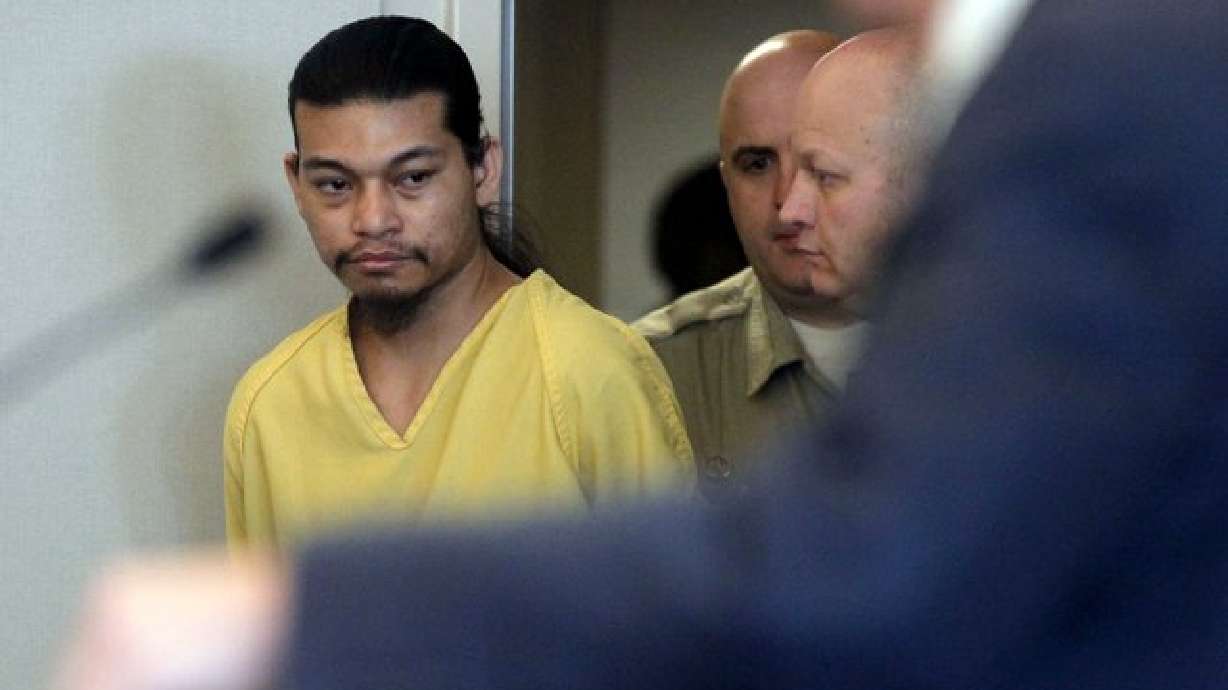Estimated read time: 4-5 minutes
This archived news story is available only for your personal, non-commercial use. Information in the story may be outdated or superseded by additional information. Reading or replaying the story in its archived form does not constitute a republication of the story.
SALT LAKE CITY — A man who went to the scene of a brutal murder to offer help to the victim's family unintentionally ended up working as a translator for police.
Some officers mistakenly believed that he worked for the FBI or was there in an official capacity.
Defense attorneys for Esar Met, 26, are asking 3rd District Judge Judith Atherton to entirely suppress the interview conducted by South Salt Lake police with their client, arguing that "very poor interpretation" kept Met — a Burmese man — from being properly advised of his rights under Miranda.
Met is charged with aggravated murder and child kidnapping, first-degree felonies, in the March 31, 2008, death of Hser Ner Moo, 7. The child's body was found in the basement of the South Salt Lake apartment where Met lived.
A detective and the man who provided the interpretation for Met both took the witness stand. Win Zaw Aungo said he heard on the news that Hser's body had been found and went to the South Parc Townhomes to try and speak with the girl's parents.
"I wondered what help, what kind of help the parents need from me," Aungo said, adding that a police officer said he would speak to his superior. "He said that if you want to really help, please go to the South Salt Lake police station."
Although Aungo said he had previously helped translate for Burmese refugees at medical clinics, he went to the police station merely to offer help. But once there, he was met by an interpreter who worked for the courts and said he was tired and happy to see him.
Related Stories:
Soon after, Aungo said "some kind of law enforcement" officer came and asked for his help translating. He said he translated for two brothers who lived with Met before planning to leave.
"I was so tired that I wanted to go to bed, but then I saw a cop running toward me," Aungo said. "Then the police told me that there is one more person — 'please help us.'"
That interview was with Met.
South Salt Lake police detective Joseph Sutera said he conducted the interview with an FBI agent, Met and Aungo as translator. He said he was under the impression that Aungo was an interpreter brought in by the FBI.
Sutera denied that he ever tried to threaten or coerce Met into talking to him.
"At any time that you had contact with the translator, Win, did you ask him to translate any threat that if (Met) didn't tell you everything you would hurt him?" prosecutor Rob Parrish asked.
"No," Sutera replied.
The interview was recorded and sent for translated transcripts. Sutera said the transcripts showed "the translation was not correct — the information I thought I was getting from the defendant was not the same as it was relayed to me and the information I was saying to the defendant was not accurately relayed to him in any way."
Aungo said he never translated or explained any threats to Met.
"I didn't teach him that the police would beat him up or maim him, I didn't teach him that," he said. "What I told him was the truth shall be told. If you don't speak the truth, it will take a long time."
Attorneys have already stipulated that the interview will not be used as evidence at trial, but state prosecutors want to have it in case Met takes the stand and it is needed for impeachment purposes.
Atherton also heard arguments from defense attorneys who want Met's sentence to come after a penalty phase, typically seen only in death penalty cases.
"That's my argument, is that what the court ought to be doing in a (life without parole) context is adopting that capital procedure," defense attorney Michael Peterson said.
But both the judge and prosecutors argued that the statute — and the Utah Supreme Court — leave sentencing decisions with the judge.
"The Legislature has clearly given the discretion to the courts," prosecutor Matthew Janzen said. "It is the judge's role to make that decision and to use the appropriate standard that the court uses in all of its sentencing."
Atherton took both issues under advisement.
Hser apparently walked away from her South Salt Lake apartment on March 31, 2008. Her body was found the next day in the bathroom of Met's nearby basement apartment. Authorities believe the child was raped, strangled and beaten to death the afternoon that she disappeared.
Though the girl was killed in March 2008, the case has stalled due to language barriers and the Burmese man's struggles to understand the court process. This is part of the reason that prosecutors decided not to seek the death penalty in the case.
A three-week trial in the case is set to begin Jan. 6.









